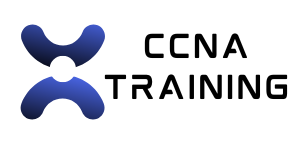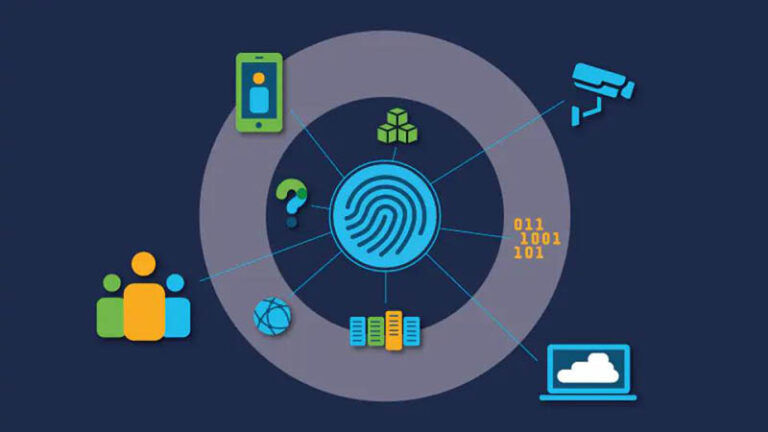Cisco Systems CCNA (Cisco Certified Network Associate) certification is a widely recognized credential in the field of networking. It is designed to validate the skills and knowledge of entry-level network engineers and technicians. The CCNA certification demonstrates an individual’s ability to install, configure, operate, and troubleshoot medium-sized routed and switched networks. It also covers the basics of security, wireless networking, and routing and switching fundamentals.
The CCNA certification is an essential stepping stone for individuals looking to build a career in networking. It provides a solid foundation in networking concepts and technologies, making it a valuable asset for both beginners and experienced professionals in the field. With the increasing demand for skilled network professionals, obtaining a CCNA certification can open up numerous career opportunities and pave the way for further advancement in the networking industry.
Key Takeaways
- Cisco Systems CCNA Certification is a valuable credential for networking professionals.
- Obtaining a CCNA Certification can lead to increased job opportunities and higher earning potential.
- The path to achieving CCNA Certification involves passing a comprehensive exam.
- Study resources and preparation tips, such as practice exams and study guides, are essential for success in the CCNA exam.
- CCNA Certification opens up networking career opportunities and can lead to further advancement and continuing education options.
The Benefits of Obtaining a CCNA Certification
Obtaining a CCNA certification offers a wide range of benefits for individuals looking to establish a career in networking. Firstly, it validates the individual’s skills and knowledge in networking, making them more marketable to potential employers. With the CCNA certification, professionals can demonstrate their expertise in areas such as network security, routing and switching, and wireless networking, which are essential components of modern IT infrastructure.
Additionally, CCNA certification holders are often considered for higher-paying job opportunities compared to non-certified individuals. Employers value the credibility and expertise that comes with a CCNA certification, making it a valuable asset for career advancement. Furthermore, the certification provides a solid foundation for individuals looking to pursue further specialization in networking, such as CCNP (Cisco Certified Network Professional) or CCIE (Cisco Certified Internetwork Expert) certifications.
The Path to Achieving CCNA Certification
The path to achieving CCNA certification involves passing one exam, either the CCNA 200-301 exam or two separate exams, the ICND1 (100-105) and ICND2 (200-105) exams. The CCNA 200-301 exam covers a wide range of networking topics, including network fundamentals, network access, IP connectivity, IP services, security fundamentals, automation, and programmability. On the other hand, the ICND1 and ICND2 exams cover similar topics but are split into two separate exams.
To prepare for the CCNA exam, individuals can choose from a variety of study resources and training options, including self-study materials, instructor-led training courses, and online resources. It is essential to have a solid understanding of networking concepts and technologies before attempting the exam. Additionally, hands-on practice with networking equipment and simulation tools can help individuals gain practical experience and confidence in their abilities.
Study Resources and Preparation Tips for the CCNA Exam
| Resource | Description |
|---|---|
| Official Cisco CCNA Study Guide | A comprehensive guide covering all exam topics |
| Online Practice Exams | Helps in assessing your knowledge and readiness |
| Video Tutorials | Visual explanations of complex networking concepts |
| Flashcards | Useful for memorizing key terms and concepts |
| Study Groups | Collaborate with others to share knowledge and resources |
There are numerous study resources available to help individuals prepare for the CCNA exam. These include official Cisco study guides, practice exams, video tutorials, and virtual labs. Official Cisco study guides provide comprehensive coverage of exam topics and are an essential resource for exam preparation. Practice exams allow individuals to assess their knowledge and identify areas that require further study. Video tutorials and virtual labs offer hands-on experience with networking equipment and configurations.
In addition to study resources, there are several preparation tips that can help individuals succeed in their CCNA exam. Firstly, creating a study plan and setting aside dedicated time for exam preparation can help individuals stay organized and focused. It is also important to review exam topics thoroughly and practice with real-world scenarios to reinforce understanding. Seeking out study groups or online forums can provide opportunities for discussion and collaboration with other individuals preparing for the exam.
The Role of CCNA Certification in Networking Career Opportunities
CCNA certification plays a crucial role in opening up networking career opportunities for professionals. With the increasing demand for skilled network engineers and technicians, CCNA certification holders are highly sought after by employers. The certification validates an individual’s ability to work with Cisco networking technologies and demonstrates their commitment to professional development in the field of networking.
CCNA certification holders can pursue various career paths in networking, including network administrator, network engineer, systems administrator, and technical support specialist roles. These roles often involve designing, implementing, and maintaining network infrastructure, troubleshooting network issues, and ensuring network security. With the foundational knowledge and skills gained through CCNA certification, professionals can excel in these roles and contribute to the success of their organizations.
Continuing Education and Advancement Opportunities for CCNA Certified Professionals

After obtaining CCNA certification, professionals can pursue continuing education and advancement opportunities to further enhance their skills and knowledge in networking. Cisco offers advanced certifications such as CCNP (Cisco Certified Network Professional) and CCIE (Cisco Certified Internetwork Expert), which allow individuals to specialize in areas such as routing and switching, security, wireless networking, and collaboration.
Continuing education through advanced certifications can lead to higher-level job opportunities and increased earning potential for CCNA certified professionals. Additionally, staying updated with the latest networking technologies and industry trends is essential for maintaining relevance in the field. Engaging in professional development activities such as attending industry conferences, participating in webinars, and pursuing additional training can help individuals stay ahead in their networking careers.
The Value of Mastering Cisco Systems CCNA for Networking Success
In conclusion, mastering Cisco Systems CCNA certification is a valuable investment for individuals looking to build a successful career in networking. The certification offers numerous benefits, including validation of skills and knowledge, increased job opportunities, and potential for career advancement. With the right study resources and preparation tips, individuals can successfully achieve CCNA certification and establish themselves as competent network professionals.
Furthermore, CCNA certification serves as a solid foundation for pursuing advanced certifications and continuing education opportunities in networking. By staying updated with the latest technologies and industry trends, CCNA certified professionals can position themselves for long-term success in the dynamic field of networking. Overall, mastering Cisco Systems CCNA certification is an essential step towards achieving networking success and making a meaningful impact in the IT industry.
FAQs
What is Cisco Systems CCNA?
Cisco Systems CCNA stands for Cisco Certified Network Associate. It is a certification program offered by Cisco Systems that validates the ability to install, configure, operate, and troubleshoot medium-size routed and switched networks.
What are the prerequisites for the CCNA certification?
There are no formal prerequisites for the CCNA certification, but it is recommended that candidates have a basic understanding of networking and some experience working with Cisco routers and switches.
What topics are covered in the CCNA certification exam?
The CCNA certification exam covers a wide range of topics including network fundamentals, network access, IP connectivity, IP services, security fundamentals, automation and programmability.
What are the benefits of obtaining the CCNA certification?
Obtaining the CCNA certification can lead to increased job opportunities, higher salary potential, and the ability to demonstrate a solid understanding of networking concepts and Cisco technologies.
How long is the CCNA certification valid for?
The CCNA certification is valid for three years. After three years, individuals can recertify by passing the current CCNA exam or by passing a higher-level Cisco certification exam.
















